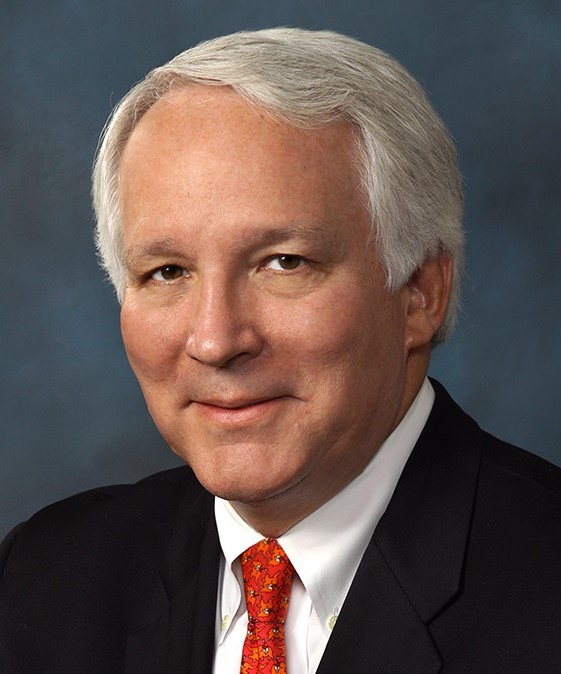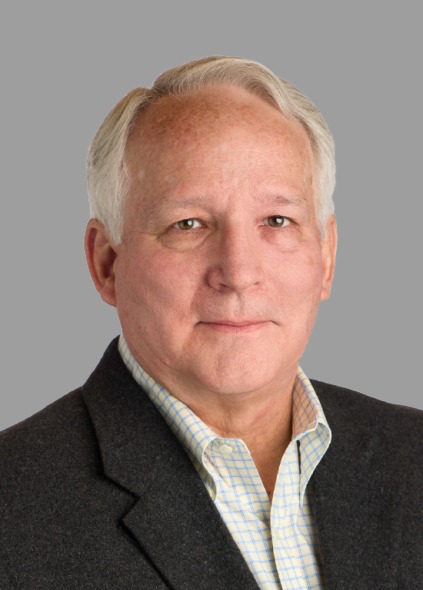Phil Keb is currently serving as the Senior Executive for Luxury Brand Growth, Americas at IHG (InterContinental Hotels Group). With a solid background in engineering, construction, finance, and development, he brings a wealth of expertise to the table, especially in the luxury hotel sector. His diverse portfolio highlights his ability to manage complex transactions and develop creative solutions. Phil has worked on projects ranging from trendy hotels aimed at tech-savvy millennials to innovative hotel financing structures in the Caribbean and the Middle East.

Phil Keb | Senior Executive | IHG Hotels & Resorts
His work has positioned him as a trusted advisor, known for his dynamic approach, market insights, and commitment to excellence in the ever-evolving hospitality industry. At EliteX, we are proud to have Phil Keb as part of the edition: 10 Elite Leaders in Hospitality, 2024.
Phil’s journey in the hospitality sector began with Hyatt in the mid-1980s, followed by a long and rewarding tenure at Ritz-Carlton from 1991 to 2002. During these years, Phil transitioned from roles in engineering, design, and construction to real estate development, marking the start of his focus on the developmental aspects of the hospitality industry. A pivotal moment in his career came when Marriott acquired Ritz-Carlton in 1995. This experience deepened his understanding of hotel and branded residential development, providing invaluable insights into the financial complexities of the hotel real estate industry. Since then, Phil has specialized in representing various stakeholders, including brands, management companies, owners, and developers. His current role at IHG involves enhancing the development efforts of luxury brands Six Senses and Regent, with a particular focus on Regent in the Americas. He has been instrumental in fostering long-term relationships with luxury owners and developers, working on new projects across the region.
Phil has witnessed significant changes in the hospitality industry over the years. One of the most notable changes is the expansion of luxury brands beyond traditional hotels to include offerings like branded residences, cruises, yachts, private members clubs, and even tented camps. These extensions allow brands to engage with customers across a wider range of experiences, creating a more holistic “eco-system” for luxury consumers. For example, it has become increasingly rare for new luxury hotels to be built without incorporating some form of branded residences as part of the project.
This concept, which started with The Sherry-Netherland in New York in the 1920s, has expanded significantly, particularly in Europe, Asia, and the Middle East. For Phil, branded residences are no longer just a trend; they are a necessity in new luxury hotel projects.
“In an industry that rewards creativity and dedication, anyone willing to work hard, learn, and innovate can succeed.”
Branded residences have proven to be highly advantageous for both developers and hotel owners. For developers, the ability to sell units helps offset the steep costs of luxury hotel development. As luxury hotel construction costs continue to rise, the inclusion of branded residences has become essential for most projects. Hotel owners also benefit from cost-sharing arrangements with unit owners, and they can generate additional profit by offering units for rent through the hotel’s rental program. Unit owners enjoy the prestige and services of living in a luxury branded property, as well as the opportunity to share in the rental income profit. This shift is a testament to the evolving nature of the industry and the changing demands of high-end consumers.
Looking at the future of the hospitality industry, Phil sees further growth in brand extensions, particularly in areas like wellness, well-being, and longevity where Six Senses is a market leader. As luxury consumers seek these services not just in resort settings but as part of their everyday lives, Phil believes that hospitality brands have the potential to not only provide these services in a way that enhances the overall guest experience, but to lead the way and set a standard for exceptional, life-altering wellness offerings.
Technology also plays an increasingly important role in the luxury hospitality sector, although it is essential to strike a balance. While technology can help personalize the guest experience by being an enabler of better service, it should never replace the personal human touch that is crucial to true luxury service. We cannot lose that emotional connection that comes from guest to associate interaction.

“Branded residences are no longer just a trend; they are a necessity in new luxury hotel projects.”
Sustainability and eco-friendly practices are also key considerations in the modern hospitality industry. For Phil, sustainability is no longer optional but a requirement. Many luxury hotels are adopting practices such as eliminating plastics, increasing recycling efforts, reducing energy consumption, and even using on-site farming in resort settings. These initiatives not only help the environment but also align with the values of today’s luxury consumers, who are increasingly concerned with the sustainability of the businesses they support.
In terms of his future goals, Phil is focused on growing IHG’s upper luxury brands in key global gateway markets. His vision is for Regent to reestablish itself and for Six Senses to continue to be a leader in their respective segments across both urban and resort locations.
Phil’s advice to those starting out in the hospitality industry is simple but effective. He emphasizes the importance of persistence and adaptability in a constantly evolving field. He also stresses the need for a deep understanding of market trends and consumer preferences, as well as the importance of delivering exceptional guest experiences. Networking and building strong relationships in the industry are crucial for achieving long-term success. In an industry that rewards creativity and dedication, Phil believes that anyone willing to work hard, learn, and innovate can succeed. Throughout his career, Phil has learned that persistence and creativity are often keys to overcoming obstacles. A memorable example of this came when he was working on a project in the Caribbean during the global financial crisis. With traditional capital sources for new hotel developments unavailable, Phil and his team collaborated with the island government and a partner in the Middle East to structure a creative limited partnership financing solution through Citizenship by Investment. This innovative approach helped finance the Park Hyatt in St. Kitts, demonstrating that the best solutions often come from thinking outside the box.
Phil’s career journey is a testament to his expertise, adaptability, and dedication to the hospitality industry. As he continues to help drive growth for IHG’s luxury brands, he remains focused on embracing new trends, overcoming challenges, and delivering exceptional experiences to developers, owners, and guests. The hospitality industry, particularly in the luxury sector, is constantly changing, and Phil’s ability to stay ahead of these changes has made him a trusted leader in the field. Whether it is through innovative financing, the expansion of branded residences, or a commitment to sustainability, Phil’s approach to hospitality development is one that continues to evolve and inspire others in the industry.
“Persistence and creativity are often key to overcoming obstacles.”